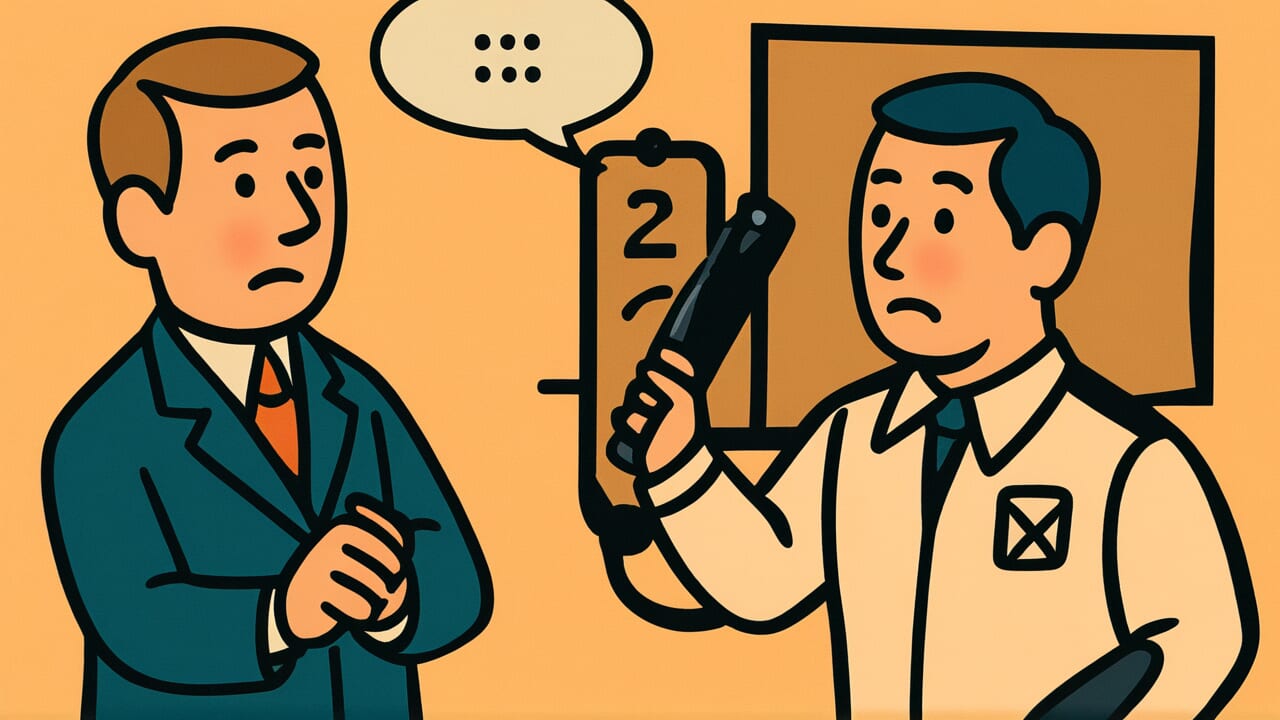How to Read “Two of a trade never agree”
Two of a trade never agree
[TOO uhv uh TRAYD NEV-er uh-GREE]
All words use standard pronunciation.
Meaning of “Two of a trade never agree”
Simply put, this proverb means people who do the same job often compete instead of working together.
The saying points to a common pattern in human behavior. When two people have the same skills or profession, they often clash. They might disagree about methods, compete for customers, or argue about who does better work. The proverb suggests this happens naturally, not by accident.
This wisdom applies everywhere in modern life. Two mechanics might criticize each other’s repair methods. Restaurant owners on the same street often view each other as rivals. Even doctors specializing in the same field sometimes disagree about treatments. The competition for reputation, customers, and success creates natural tension.
What makes this observation interesting is how predictable it seems. People expect those with similar skills to get along well. After all, they understand each other’s challenges and expertise. But the proverb suggests the opposite often happens. Shared knowledge can create competition rather than friendship.
Origin and Etymology
The exact origin of this proverb is unknown, though it appears in various forms across European languages. Early versions can be traced to the 1600s in English literature. The saying likely emerged from observations of guild systems and trade communities.
During medieval and early modern times, craftsmen organized into guilds that controlled their trades. These groups were supposed to maintain standards and protect members. However, competition within trades was fierce. Master craftsmen competed for apprentices, materials, and wealthy customers. This environment made cooperation difficult even within the same profession.
The proverb spread as trade and commerce expanded across Europe. Different versions appeared in French, German, and other languages with similar meanings. The English version became common by the 1700s. It reflected the reality that professional rivalry was universal, not limited to any single culture or time period.
Interesting Facts
The word “trade” in this context comes from Middle English, originally meaning “path” or “course.” Over time, it evolved to mean a skilled occupation or craft. This reflects how professions were seen as life paths people followed.
The proverb uses a simple grammatical structure that makes it memorable. The phrase “never agree” is absolute, which strengthens the statement’s impact. This type of definitive language was common in traditional sayings designed to stick in people’s minds.
Usage Examples
- Manager to HR director: “The two marketing consultants we hired keep clashing over every campaign strategy – two of a trade never agree.”
- Customer to shop owner: “I noticed your two mechanics had completely opposite opinions about fixing my car – two of a trade never agree.”
Universal Wisdom
This proverb reveals a fundamental tension in human nature between cooperation and competition. People naturally compete for limited resources, recognition, and status. When individuals possess similar skills, this competition intensifies rather than disappears. They understand each other’s capabilities too well to ignore the threat of being outperformed.
The psychological roots run deeper than simple rivalry. Humans have an innate need to feel unique and valuable. When someone else can do exactly what we do, it challenges our sense of special worth. This creates anxiety about our place in the social hierarchy. Rather than celebrating shared expertise, we often focus on small differences that might give us an edge.
Evolution shaped us to compete for survival advantages, including skills that ensure resources and mates. Those who excelled at hunting, toolmaking, or healing gained status and reproductive success. This competitive drive remains strong even when cooperation might benefit everyone involved. The proverb captures this ancient pattern that persists despite modern abundance and opportunity.
When AI Hears This
Two experts looking at the same problem see completely different things. A chef tastes another chef’s soup and notices the salt timing, not the skill. They both assume customers can tell their techniques apart. But diners just taste “good soup” from both kitchens. Each expert becomes invisible to the other because they share the same deep knowledge.
This happens because expertise creates a strange kind of blindness. When you know something deeply, you notice tiny differences that seem huge. Other experts seem wrong because they do things slightly differently. Meanwhile, you both look identical to everyone else. It’s like two painters arguing about brushstrokes while viewers see the same beautiful picture.
What’s remarkable is how this isolation actually protects each expert’s confidence. If they truly saw how similar they were, they might lose their drive. The blindness keeps them pushing forward, improving their craft. Their disagreement isn’t really conflict – it’s two people looking in the same mirror and seeing different reflections. This creates better work for everyone else.
Lessons for Today
Understanding this wisdom helps explain many workplace and professional dynamics. When colleagues have similar roles, tension often emerges naturally. Recognizing this pattern allows people to address competition constructively rather than letting it create lasting conflicts. The key lies in acknowledging that professional rivalry is normal, not personal.
In relationships and collaborations, this insight proves valuable for managing expectations. Two experts working together need clear boundaries and defined roles. Without structure, their similar capabilities can lead to power struggles and disagreements. Smart teams leverage different strengths rather than duplicating expertise unnecessarily.
Communities and organizations benefit from understanding this dynamic when bringing together professionals. Rather than assuming people with similar skills will automatically cooperate, leaders can create systems that channel competition positively. This might involve clear territories, different specializations, or shared goals that require collaboration. The wisdom isn’t about eliminating competition but managing it wisely.



Comments